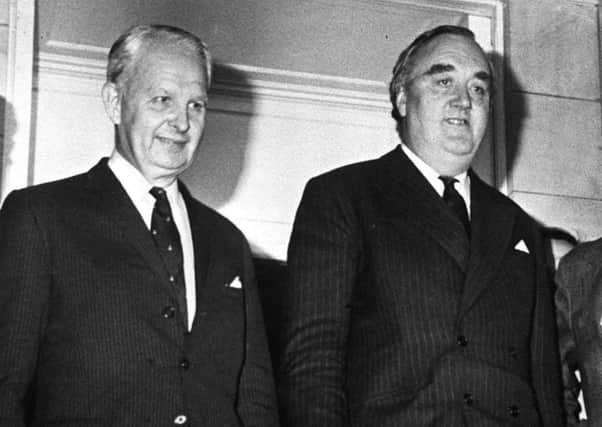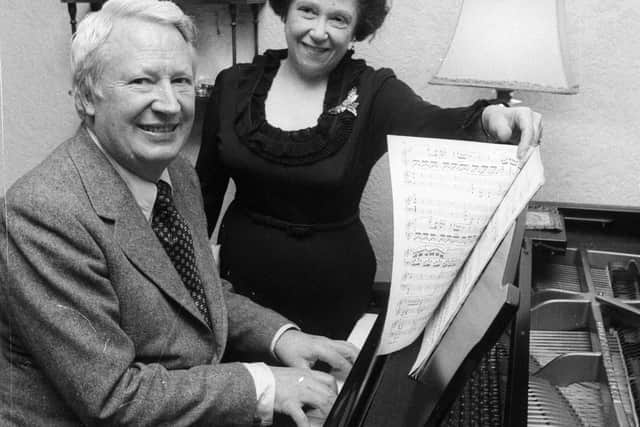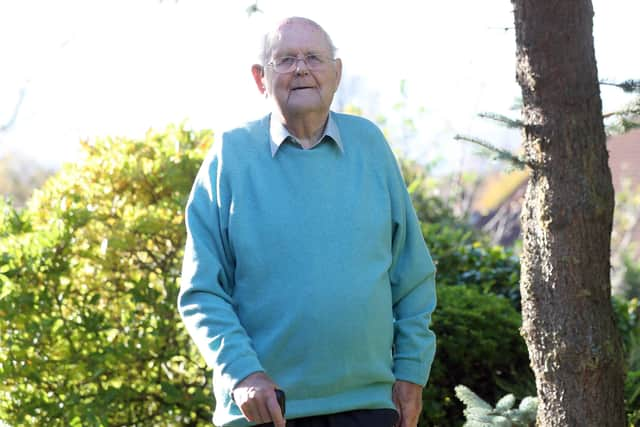Civil servant memoir: ‘Irish Americans were reminded that they had confiscated lands too, at later date and more brutally and successfully’


(See below for links to earlier sections of this memoir)
Brian Faulkner had asked me to let him see a small sample of each day’s incoming correspondence.
I soon discovered that it was unwise to annoy him by letting him see some of the more offensive letters, so like George Orwell, some of my samples were more balanced than others.


Advertisement
Hide AdAdvertisement
Hide AdI certainly did not let him see the letter where the inner transparent packet contained a soft brown substance.
It was my job to ensure that my chief was properly equipped for all occasions with background notes and speaking notes. He was a superb performer. If there was anything missing from my briefing, his own retentive memory and gift for improvisation saw him through.
Not written into my brief was the requirement to act as my chief’s eyes and ears. Some of the incidents are unrepeatable even at this late stage, including the private life of one minister.
The installation of a scrambler phone in my home fascinated my four children.


Advertisement
Hide AdAdvertisement
Hide AdOne Sunday evening it was answered by my younger son who was a couple of minutes before coming for me. It turned out to be General Sir Harry Tuzo trying to make contact with Brian Faulkner.
But the general, instead of saying “fetch your dad”, had been courteous enough to engage him in a short conversation.
On June 28, elections for a new Stormont assembly took place under Proportional Representation rules.
Next day, the count took place at the Maynard Sinclair Pavilion on the Stormont Estate.
It was fascinating to see the PR. system at work.
Advertisement
Hide AdAdvertisement
Hide AdOne transfer I particularly remember was that of the Ulster Unionist Party leader Brian Faulkner’s surplus in South Down.
It was so massive that he was able to transfer several thousand votes to his colleague Brigadier Broadhurst who was at the bottom of the heap.
A digression here. A year later, Mr Faulkner asked me to take Brigadier Broadhurst to the opening of Warrenpoint Harbour. I duly reported to his family mansion at Drumbo.
Out came the good brigadier, paused and said: “Excuse me, Mr Duncan, I have forgotten my map.”
Advertisement
Hide AdAdvertisement
Hide AdI recalled that he had spent much of his army service in the Arab Legion where no doubt maps were essential.
Now, the highest rank I had attained was major in the Territorial Army, but I thought I could manage Warrenpoint without a map and reassured the brigadier accordingly.
We had an enjoyable day.
Throughout the remainder of 1973, prolonged discussions on a power-sharing executive continued, culminating in the conference at Sunningdale in December.
I was not involved, but the gossip coming back was that Ted Heath had had to do a considerable amount of bullying to achieve a settlement.
Advertisement
Hide AdAdvertisement
Hide AdThere was also a suggestion that Heath’s playing of Irish songs on the piano annoyed politicians of both persuasions.
The nationalists thought that some of the songs were not genuine Irish but Hollywood slush, while the unionists disliked Irish songs whether ancient or modern.
So, forward to January 1974 and the power-sharing executive was formed, with Brian Faulkner as chief minister and Gerry Fitt as deputy chief.
As the secretary of state’s entourage was in possession of Stormont Castle, our little outfit moved to a corner suite on the first floor of Parliament Buildings.
Advertisement
Hide AdAdvertisement
Hide AdI was delighted to be offered the post of Principal Private Secretary to Mr Faulkner. (It was to be almost 30 years later, on reading a book by a former colleague, that I learned that I had only been second choice. Knowing and admiring the other man well, I must confess that Mr Faulkner’s first choice would have been a wise one).
I am old-fashioned enough to detest the term ‘Human Resources’, but whoever ran that show in 1974 gave me two of the best assistants a man could wish for — John Walker and Chris McCabe. (Many years later they both rose to near the top in the Northern Ireland Office).
Chris kept Mr Faulkner’s diary and made his travel arrangements.
Never once did he get it wrong. John handled the huge volume of correspondence, and did not content himself with the easy “contents noted” reply.
Where possible, he responded with a well-reasoned answer.
Advertisement
Hide AdAdvertisement
Hide AdA problem was how to deal with the constant Irish-American complaint that the British/English had confiscated the lands of the native Irish.
John would gently point out that at a much later date, and in a much more brutal and successful way, the white man had confiscated the lands of the native Red Indians.
The American rarely came back!
• Sinclair Duncan was in the NI Civil Service from 1949 to 1985. He worked in the ministries of Education, Finance and Agriculture, the Cabinet Office, Office of the Executive, NIO and the Department of Environment. The rest of this memoir will be published daily in the News Letter this week
Advertisement
Hide AdAdvertisement
Hide Ad——— ———
A message from the Editor:
Thank you for reading this story on our website. While I have your attention, I also have an important request to make of you.
With the coronavirus lockdown having a major impact on many of our advertisers — and consequently the revenue we receive — we are more reliant than ever on you taking out a digital subscription.
Advertisement
Hide AdAdvertisement
Hide AdSubscribe to newsletter.co.uk and enjoy unlimited access to the best Northern Ireland and UK news and information online and on our app. With a digital subscription, you can read more than 5 articles, see fewer ads, enjoy faster load times, and get access to exclusive newsletters and content. Visit https://www.newsletter.co.uk/subscriptions now to sign up.
Our journalism costs money and we rely on advertising, print and digital revenues to help to support them. By supporting us, we are able to support you in providing trusted, fact-checked content for this website.
Alistair Bushe
Editor